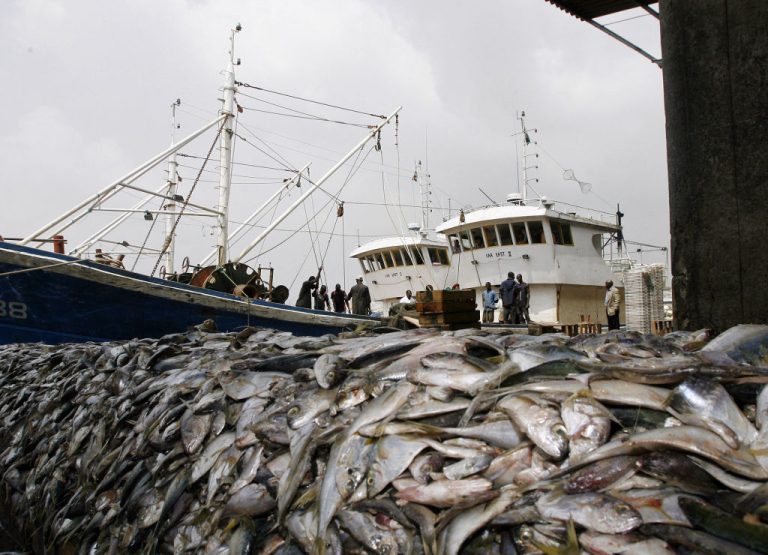The Minister of Marine and Blue Economy, Adegboyega Oyetola, has promised to reduce Nigeria’s need to import fish. He plans to do this by helping local fish farming grow, making traditional fishing better, and creating more fish farms. He also wants to help young people and women learn the skills they need to succeed in the marine industry.
In a statement from the ministry on Thursday, Oyetola said, “We should not keep importing fish that we can produce in Nigeria.”
He explained that the government is working hard to increase local fish production. This includes supporting fish farms, improving small-scale fishing, and setting up more fish farming centers across the country. This will help save Nigeria’s money and also create many jobs, especially for people living near rivers and the coast.
Oyetola also said it’s important to involve young people and women in this sector. He believes that everyone must be included for real progress to happen.
“We are creating programs to give young people and women the training, tools, and support they need to lead in the marine economy,” he said. “This isn’t just about growing the economy—it’s also about helping people and making sure everyone benefits.”
He said Nigeria is now on the right track to make good use of its oceans, rivers, and coastal resources. This is after the Federal Executive Council approved a new National Policy on Marine and Blue Economy.
“This new policy is very important. It’s the first one of its kind and gives clear guidelines on how to use, protect, and manage our marine resources in a smart and sustainable way,” Oyetola said. “It will help create jobs, improve food supply, and make Nigeria a top player in Africa’s marine economy. We want to use our waters wisely so that all Nigerians benefit now and in the future.”
Gladys Fajomu, who led a World Bank team, praised Oyetola for his leadership and Nigeria’s strong efforts in the marine sector. She said the World Bank will keep supporting Nigeria by offering advice, training, and funding for important projects.
Her team, which included Yolanda Monteo and Felicia Mogo, also met with top officials from the ministry. They discussed how they can work together on putting the new policies into action, building infrastructure, and getting private companies involved.


